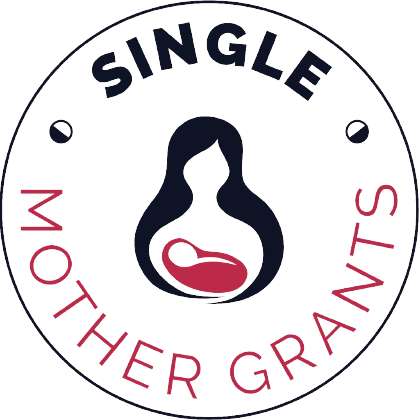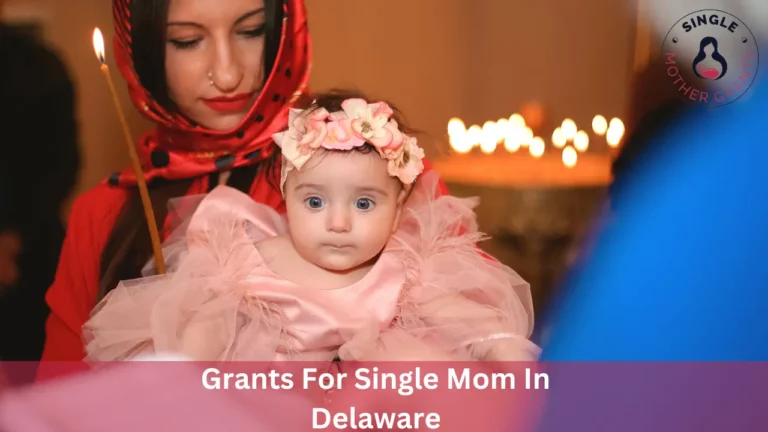Pell Grants For Single Moms
With the cost of higher education increasing continuously with each passing day, many single moms struggle to afford college. Besides fulfilling their parental duties and responsibilities, single mothers also have to face logistical and financial challenges which hinder their capability to pursue higher education. Pell grants for single moms going to school is a financial lifeline for low-income students and single mothers that enable them to face life challenges prudently and pursue higher education.
Pell Grants is a federal government assistance program for single moms that enables them to get higher education degrees and cover their education costs. Single mothers who are vulnerable to poverty and find it challenging to meet their household, living, and child expenses can benefit the best from this program and improve their career prospects. The Pell Grant for single moms and low-income students is one of the best sources of financial aid in America, funded by the federal government. This entitlement program can provide financial assistance of $6345 to eligible students who need financial assistance.
What is a Pell Grant?
Pell grants are financial aid opportunities provided by the United States federal government to enable students in need to pay for their college. The federal Pell Grant for single moms need not be repaid, unlike student loans. Single mothers can avail of this grant to complete their undergraduate degree at any recognized university in the United States. Students can qualify for this grant for up to 12 semesters, provided they are showing sufficient academic progress.
Who Is Eligible For Pell Grant?
Taking admission to college or university can be expensive and demanding. Low-income students can complete their college degree and get financial support through Pell grants. The following students receive assistance through the Pell Grant program.
1. Undergraduate Students
Low-income undergraduate students and single mothers enrolled in an eligible college or university program can get assistance through Pell grants. The eligible college or university programs include vocational and certificate programs and full-time college degrees ranging between two to four years.
2. Professional Degree Students
Students and single mothers enrolled in professional degree courses like law, medicine, and dentistry are eligible to apply for the Pell Grant program.
3. Career School Students
Single mothers and students enrolled in any technical program or career school can receive assistance through the Pell Grant program.
How Many Single Moms Get Pell Grants?
As per research, more than 211.8 million students have received financial assistance through Pell grants since 1980. Around 30% to 40% of undergraduate single mothers receive financial assistance through the federal Pell Grant program each year. According to the reports of the Department of Education, around $25.4 billion in Pell Grant funding has been provided to 6.1 million low-income students and single mothers in the academic year 2021 to 2022. The maximum annual Pell Grant limit for the academic year 2023 to 2024 is around $7395. There is a limit on the maximum grant that can be awarded to eligible students. This maximum grant accounts for six years of funding or 12 terms.
Single mothers are evaluated for eligibility and award limits of Pell Grant like any other student. Presently the max Pell Grant for single moms is $5920. Students may also qualify for a part of this amount if they do not demonstrate enough financial need to get the total value of the grant. This is the cap for every student, not only single mothers. If a student is eligible for the maximum Pell Grant but attends school part-time only, they will receive the amount proportional to the total number of hours they attend. Usually, the complete attendance for this grant is 12 hours, and if a student has enrolled for only six hours, they will receive financial assistance for up to 50% of the max Pell Grant.
Do You Need To Pay Back Pell Grants?
Scholarships and grants represent financial aid or free money, which need not be repaid, unlike loans. However, there are circumstances in which students or single mothers may repay all or a part of their Pell Grant. This includes dropping out of the education program for which they were awarded the Pell Grant, changing their attendance from full-time degree to part-time, or receiving additional grants or scholarships that lower their eligibility criteria for receiving federal aid. In all the circumstances mentioned above, your school will let you know how much Pell Grant money you owe and how much you should repay.
Why Are Pell Grants For Single Moms So Important?
Single mothers have to face unique sets of challenges and difficulties while pursuing higher education. While some single mothers face logistical challenges while balancing their parental responsibilities and educational pursuits, some single moms are the sole earners for their households. Pell grants for single moms offer them the financial support and assistance that enables them to improve their employment prospects by pursuing higher education. Around 5400 post-secondary organizations are working throughout the United States which participate in the federal Pell Grant program.
How Can You Qualify For A Pell Grant?
To qualify for Pell Grant, low-income students, and single mothers must demonstrate their financial need by submitting FAFSA, Free Application For Federal Student Aid. The FAFSA takes a lot of factors into consideration to ascertain the student’s EFC or expected family contribution, and this includes assets and the family income of the student. The Pell Grant award decreases for those students having a higher EFC. Students having an EFC above a specific threshold will not be eligible to apply for this grant.
Who Is Eligible To Apply For A Pell Grant?
To be eligible for the Pell Grant reward, students and single mothers have to fulfill specific eligibility criteria, which include the following
- Being a citizen of the United States or an eligible non-citizen
- Enrolling in an accredited certificate or degree program
- Possessing a high school diploma or any equivalent education degree
- Not being default on any federal student loan
- Not owing refunds on federal student loans or grant
- Maintaining sufficient and satisfactory academic progress in the college
- Demonstrate financial need
There is no guarantee that all single mothers qualify for a full or partial Pell Grant amount. Pell grants are awarded traditionally to low-income families, including single mothers. Candidates will receive Pell grants based on the cost of attendance and income limits. Financial need is an essential factor in becoming eligible for Pell Grants. To stay eligible for Pell grants and other federal financial programs, single mothers and eligible students must file out FAFSA every year. They also need to show that they are making good academic progress toward their educational goal or degree. Students may lose their eligibility for Pell Grants temporarily if they are convicted of a drug offense, default on a student loan, or if they change their college attendance from full-time to part-time.
How Can Single Mothers Apply For A Pell Grant?
To apply for a Pell Grant, low-income students and single mothers must complete filling out the FAFSA. You can complete the FAFSA online, where you must provide information about your financial situation, family income, total assets, and other vital factors impacting your ability to pay for your college. After submitting the FAFSA, you will receive a SAR or Student Aid Report, which will summarize your eligibility to receive the financial aid including your eligibility for Pell Grant.
What Are The Benefits Of Applying For the Pell Grant Program?
Single mothers and low-income students can benefit greatly by becoming eligible for the Pell Grant program. Some of the benefits are as follows:
1. Financial Support
Pell grants provide financial assistance and support to low-income students and single mothers who cannot afford to pursue higher education due to their financial crisis. This grant enables eligible students to improve their employment prospects, boost their earning potential, and improve their living standards and families.
2. Lowers The Burden Of Loan Debt
Pell grants enable single mothers and low-income students to lower their loan debt burden. This can be particularly beneficial for those single mothers with additional financial obligations.
3. Encouragement To Pursue Higher Education
Pell grants encourage students and single mothers to pursue higher education. This grant makes college more affordable for low-income single mothers and students and enables them to pursue their career goals without worrying about educational costs and college fees. Eventually, Pell Grants help to make education more accessible for students and positively impact society.
Other Financial Assistance For Postsecondary Education
In addition to federal financial aid programs like Pell Grants, many state and local programs financially support low-income students and single mothers. These include grants, scholarships, student loans, and work-study programs. Grants and scholarships are pretty similar to Pell Grants as they need not be repaid and are based on the eligibility criteria and academic achievement of the candidates. Worktime programs enable students to earn money while attending college, and student loans must be repaid with lower interest rates and flexible repayment options compared to private loans. Local organizations like foundations and charities provide grants and scholarships to students so that they can pay for their college and pursue higher education. Many state programs provide scholarships and tuition assistance to low-income students and single mothers. Some of these federal aid programs apart from the Pell Grant are Federal Supplemental Education Opportunity Grants and Teacher Education Access For College And Higher Education Grants Program. The federal government funds these programs, which are awarded to students and single mothers who are in extreme financial need.
Conclusion
If you’re a single mom willing to go back to college, there are many grants and financial aid opportunities for you to bear the cost of education. Between household expenses, living expenses, and child expenses, single mothers usually do not have much money left over that can enable them to pay for their school or college fees. Pell grants for low-income students and single mothers make it possible for individuals to earn a degree that would otherwise have been challenging due to the rising college and tuition costs.







